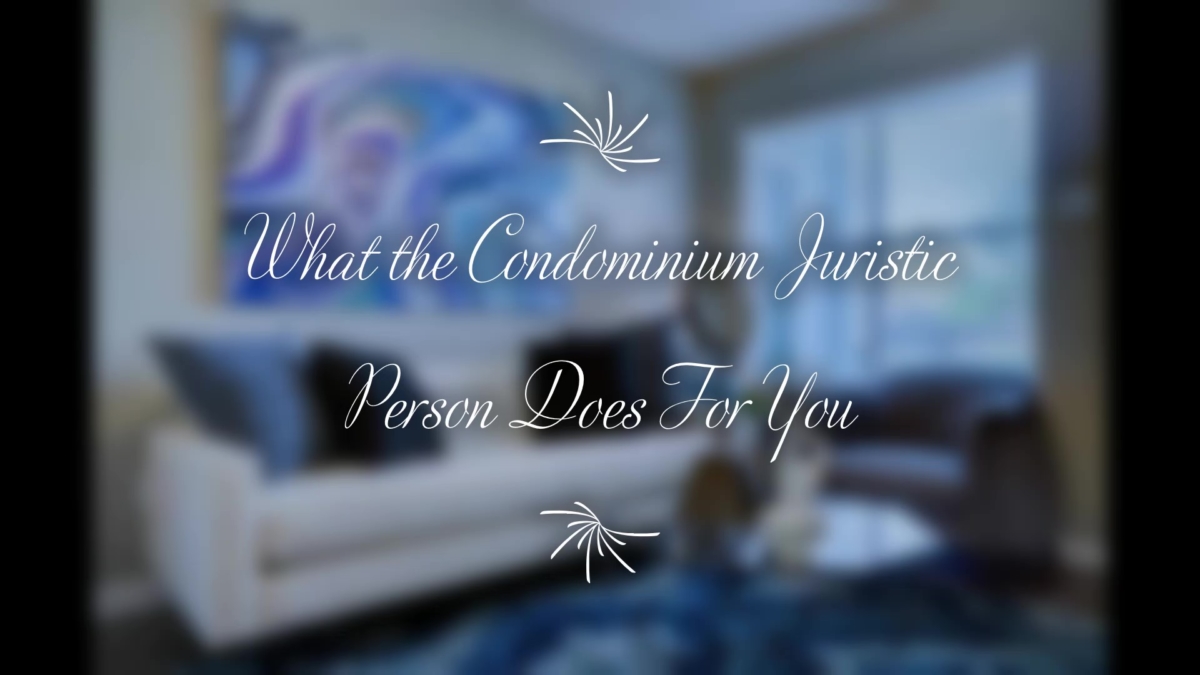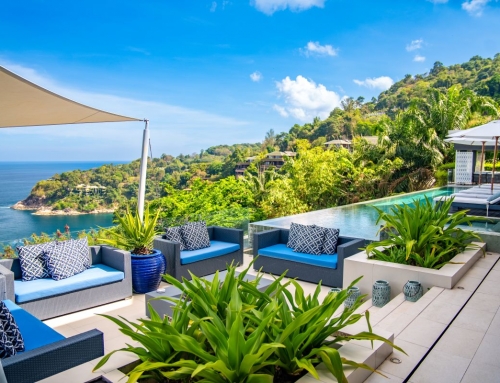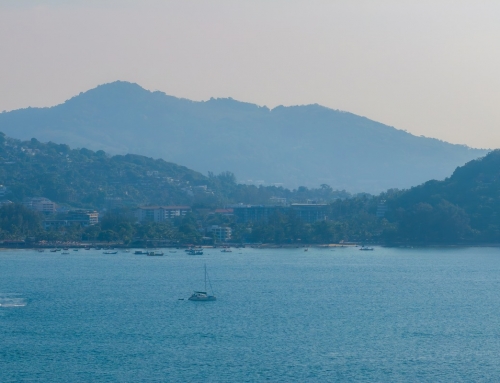Purchasing a condominium in Thailand is one of the most popular forms of property ownership for foreigners. This is likely down to the fact that foreigners may legally own a freehold condominium in their own name.
The Benefits and Advantages of Owning a Freehold Condominium in Thailand
Condominium resorts also have a number of other shared amenities and facilities which add to their allure, such as swimming pools and gyms.
Condominium owners also share the gardens and communal areas, in fact, they have a fractional ownership share in all of the condo’s common areas and facilities.
So if everyone owns it, who is responsible for looking after all of these shared spaces?
The body which is tasked with the day-to-day maintenance and upkeep of all the common areas and amenities is known as the Condominium Juristic Person, or CJP for short.
This article explains the function of the CJP, and helps owners to understand its importance to their condo.
“Juristic Person” may evoke images of an old man in black robes and a powdered wig, but that is actually quite far from the mark.
It’s probably a good idea to start then from the beginning and clarify exactly what is meant by Juristic Person.
Its simplest definition is this: either one person or a group of people (such as a company), recognized by law as being entitled to specific legal rights and/or duties.
In Thailand, the group of individuals given the role of managing the condominium resort on behalf of all the owners of the resort is collectively referred to as the Condominium Juristic Person.
This usually includes the management company and the owners committee (sometimes called the Management Committee, or Corporate Committee).
The Juristic Person in a condominium may also include the owners, as well, insofar as all owners have voting rights, and some are even selected to sit on the committee.
In essence, the juristic person constitutes everyone involved in the decision making process, if they choose to be.
Obviously, many owners refrain from getting involved in running the condominium they jointly own, and most never bother to attend any meetings.
But Who Does The Actual Management?
The CJP might act as the manager of the condominium or alternatively, it could appoint someone to act as a manager.
If the CJP appoints a company (also referred to as a Juristic Person), then that company must appoint an individual to act as the Juristic Manager (CJM).
The CJM is hired or nominated to carry out all management duties, whether administrative or maintenance related. The CJM is also the signatory on any relevant condominium paperwork.
If there is not a separate Business Manager at the condo, this may even include signing cheques or bank transfers (typically limited in amount by the committee).
There are certain stipulations and qualifications for an appointed Manager to carry out these duties.
What Does It Mean By Rights and Duties?
In the case of a condominium, those “rights” would be to act on behalf of all the owners to perform the “duties”.
The duties will include the general running of the resort, maintaining cleanliness, collecting common area fees from owners, employing and paying workers, paying all utility bills, garbage disposal, and making sure the facilities and gardens, swimming pools etc., are all kept in pristine condition.
The Common Area Fee or Maintenance Fee
The upkeep of the condominium resort is funded by the collection of a fee, typically either monthly or quarterly, from every owner. Depending on the condo, this may be called a Common Area Fee, a Maintenance Fee, or a Common Area Maintenance Fee (CAM Fee, for short).
The fee is a fixed amount per square metre payable on your individual unit area. The amount of the CAM fee may be changed if the majority of owners vote in favour, which would typically be done at an Annual General Meeting (AGM).
You can read more about the common area and common area fees here:
What is the Common Area and the Common Area Fee?
The CJP would also be responsible for looking after and utilising the sinking fund, should it ever be required for major works on the resort, or in the case of an emergency.
Again, although there is no legislation concerning this under the Condominium Act, a majority vote is usually needed to use the sinking fund and/or to replenish the funds in the future.
What is a Condominium Sinking Fund?
The CJP and the Condominium Act
The laws pertaining to the CJP were spelled out in the Condominium Act of 1979, but has also been subject to amendments over the years.
The Condominium Act is essentially the blueprint to which developers, the CJP and managers adhere in the organization and running of a condominium resort.
Upon completion of the development, there is a transitional phase during which all control, management and running of the resort is handed from the developer to the CJP, manager, the committee, and all the condo owners.
This is when the condominium resort is registered with the authorities, and the registration of the Condominium Juristic Person is published in the Government Gazette.
All this happens around the same time as the freehold units are registered with the Land Office in each owner’s name.
The Things All Phuket Condominium Investors Should Know About the Condominium Act
As mentioned above, there is typically a committee which makes decisions on how the management of the condominium shall be conducted, and where monies should be spent. The committee might be made up of individual owners, the manager and the CJP.
Does Every Condominium Have a Committee?
Not every condominium has a committee, because some resorts may simply not have any owners with the time, the inclination or the motivation to get involved.
The owners of other resorts may be happy with the work being done, and willing to trust the CJP and manager to keep up the good work.
But owners in every condominium building, by law, have the right to some form of self-governance through a committee. This is when owners can vote to elect other residents or owners to sit on the committee.
These elected committee members then have a say in the running of the resort, including where money gets spent and where improvements can be made. They may also get involved in setting rues and in some cases enforcement of these rules.
Generally speaking a committee consists of 3 or more owners, but can have as many as 9 elected members. The term of a committee member is two years, and they may be re-elected to only two consecutive 2-year terms, after which they must step down.
We have known members to maintain the position because no other owners could be found to stand for election. In this case, additional terms on the committee are permitted.
Committee members should attend each committee meeting, including the AGMs, and most of what they do is in a monitoring capacity. They make sure the Rules and Regulations of the Condominium are being adhered to, and propose and discuss any changes.
In doing so, they also ensure the resort is being managed efficiently. Should it ever be deemed necessary, they may be involved in the process of removing a CJP or CJM and appointing a new one.
Committee members also convene to approve the annual audit of the condominium, thus making sure the resort’s finances are in order.
The Condominium Act stipulates who is eligible for being a member of the committee. For the most part, any owner is eligible, whether a local or foreigner, as long as they are of sound reputation and considered a fit and proper person.
Voting For Foreigners
In some cases, owners will be asked to vote on certain issues, or they may be asked to vote on electing committee members.
Because many new condominiums today are purchased for investment, rather than residential purposes, most owners will not cast votes. Some absentee owners may vote by proxy, but many may simply not be bothered to vote at all.
Chinese buyers, for example, are unlikely to bother with translations, unless the resort feels the Chinese ownership warrants translating the AGM Notice into Mandarin, and sending the details to owners in China.
What Are the Condominium Rules and Regulations?
Every condominium in Thailand will have its own set of Rules and Regulations, which may be very broad and encompass many topics.
As long as they do not conflict with Thai Condominium laws, there is no really limit as to what these rules may involve.
One common example is pet ownership – not every condo allows them. Rules may also address matters such as hanging washing on balconies, allocating car parking spaces, or how noisy tenants will be dealt with.
Of course they also cover more substantive issues like the commercial use of units for rentals, or procedures for changing the common area fee and sinking fund.
The rules and regulations are normally ratified/changed or approved with a committee vote at the Annual General Meeting (AGM).
If a matter at hand is urgent and cannot wait months to be addressed, a special meeting or Extraordinary General Meeting (EGM) may be called.
An EGM may also be called if the matter falls outside of the topics usually addressed at the AGM.
For example, a block of owners may want to propose that a vote be taken for acceptance of short-term rentals, and possibly even to apply for a hotel license (to assist owners in maximising their rental income).
Supervising the Proportion or Ratio of Ownership at the Condominium
One of the roles of the CJP is to make sure that the ratio of foreigners to Thai nationals stays below the limits set by the Condominium Act.
The law states that foreigners may only own 49% of the unit area available in any condominium, and the CJP must ensure that – through purchases and sales of condominium units – this ratio is adhered to.
Any contravention of this ratio would be dereliction of duty on the part of the CJP, but it would also potentially invalidate the last sale to a foreigner causing the 49% limit to be breached.
There could be legal liabilities for both the CJP and the foreign owner in question resulting from such an oversight.
Appointment of the CJP – Does the CJP Require Specific Qualifications?
The Condominium Act does lay down some provisions to define a “fit and proper person” who may act as a Juristic Manager. It doesn’t really constitute great reading material, so we shall summarise the key qualifications required.
A Juristic person must be 25 years old and never have been bankrupt, dismissed from a job with the government, imprisoned, nor removed from a job as a manager due to failing in his or her duties. They must also have no unpaid debts or taxes on property.
In short, they must be reputable, and not someone who would be at risk for taking advantage of the money to which they will have access in their role as a CJP.
Duties as Laid Out by the Condominium Act
The Condominium Act states in detail the roles and obligations of the Condominium Juristic Person.
Its primary objectives are to manage and maintain the common area to the best of its ability. The CJP must also take all necessary action to ensure this is achieved, within the confines of the law.
The Act also points to keeping peace and order, managing finances, retrieving late payments and due taxes from owners whenever and wherever necessary, and even empowers the CJP to sue owners for failure to pay such debts.
We have tried to simplify this article for the purpose of easy reading and therefore we have omitted technical details as much as possible.
For those readers that enjoy details and more technical reading, The Office of the Council of State has provided a translation of the Condominium Act which covers all aspects of the Condominium Juristic Persons.
You may click the link below and refer to Chapter V, Page 20 onwards.
http://web.krisdika.go.th/data//document/ext809/809785_0001.pdf
You can read some of our related Phuket condominium articles here:
Condominiums Explained – What is a Condominium?
Owning a Freehold Condominium through an Offshore Company
Owning a Freehold Hotel-Licensed Condominium in Thailand
Using a Thai Company Limited to Purchase a Leasehold Condo Unit
The Importance of Sound Legal Advice When Buying Property in Phuket
The Different Types of Property in Phuket
Conducting the Necessary Due Diligence When Buying Real Estate in Phuket
Is Thailand Alone? How Many Countries in the World Prohibit Foreign Ownership of Land?





Social Contact